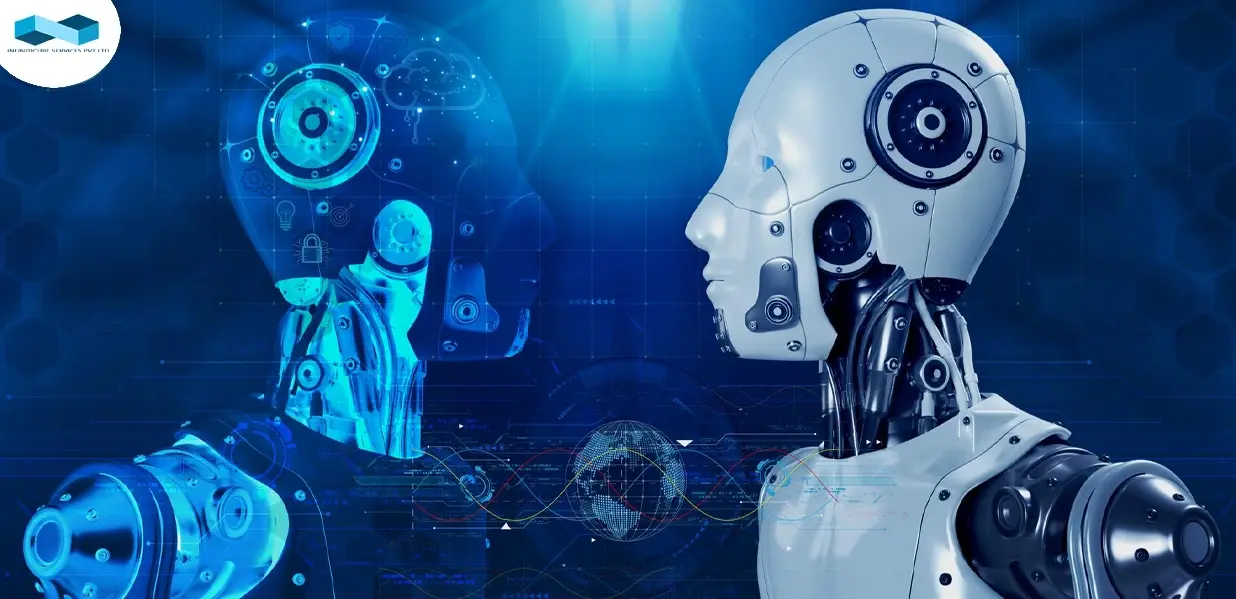2024/2025: Blockchain & AI Transform Supply Chain Management
I. Introduction
Blockchain is a decentralized ledger ensuring secure, transparent, and immutable data with peer-to-peer networks. AI simulates human intelligence in machines, utilizing machine learning, neural networks, Natural Language Processing (NLP), and computer vision.
Blockchain started with Bitcoin in 2008, evolving to Ethereum and enterprise applications for improved transparency and security. AI research began in the 1950s, advancing to machine learning and deep learning for enhanced capabilities in various applications.
Supply Chain Management (SCM) oversees goods and services flow globally and locally, optimizing operations and customer satisfaction. Challenges in traditional SCM include lack of transparency, data silos, manual processes, complexity, and compliance issues. Integrating blockchain and AI technologies can address these challenges for efficient and secure SCM practices.
II. Blockchain in Supply Chain Management
Enhancing Transparency and Traceability
Immutable Ledgers for Real-Time Tracking of Goods
Blockchain technology uses a decentralized and immutable ledger to record transactions. In supply chain management, this ledger can be used to track goods in real time from the point of origin to the final destination.
Benefits:
Real-Time Updates: Stakeholders can view real-time updates on the status and location of goods, ensuring transparency.
Tamper-proof Records: Once information is recorded on the blockchain, it cannot be altered, ensuring data integrity.
Case Studies of Successful Blockchain Implementation
Walmart
Application: Walmart has implemented blockchain technology to track the provenance of food products.
Outcome: This has reduced the time it takes to trace the origin of food products from days to seconds, enhancing food safety and transparency.
Maersk
Application: Maersk, in collaboration with IBM, launched TradeLens, a blockchain-based platform for global trade.
Outcome: TradeLens has improved visibility and efficiency in the supply chain, reducing the time and cost associated with manual processes.
Reducing Fraud and Counterfeiting
Verification of Product Authenticity and Origins
Blockchain allows for the recording of every transaction in the supply chain, creating an auditable trail of a product's journey. This ensures that products are genuine and have not been tampered with.
Benefits
Authenticity Verification: Consumers and businesses can verify the authenticity of products by accessing their blockchain records.
Origin Tracking: Blockchain records the origin of products, ensuring that they come from reputable sources.
Blockchain’s Role in Preventing Fraudulent Activities
By providing a secure and transparent record of transactions, blockchain helps prevent fraudulent activities such as counterfeiting and theft.
Case Study
Everledger: Everledger uses blockchain to combat fraud in the diamond industry by providing a digital ledger of diamond certificates and transaction history. This helps verify the authenticity and ownership of diamonds, reducing the risk of fraud.
Improving Data Security
Secure Data Sharing Among Stakeholders
Blockchain enables secure data sharing among all participants in the supply chain. Each participant has access to the same data, which is encrypted and protected from unauthorized access.
Benefits
Enhanced Security: Data on the blockchain is encrypted and decentralized, making it less vulnerable to hacking and unauthorized access.
Access Control: Only authorized participants can access certain information, ensuring data privacy and security.
Examples of Enhanced Security Measures Through Blockchain
Case Study
BHP Billiton: The mining company uses blockchain to secure data generated during the tracking and recording of mining processes. This ensures the integrity and security of data shared among various stakeholders.
Security Improvements
Decentralization: By decentralizing data storage, blockchain reduces the risk of a single point of failure.
Encryption: Data is encrypted, ensuring that only authorized parties can read it.
Streamlining Processes and Reducing Costs
Automating Administrative Tasks and Reducing Paperwork
Blockchain can automate various administrative tasks, reducing the need for manual paperwork. Smart contracts, which are self-executing contracts with the terms directly written into code, can automate transactions and compliance checks.
Benefits
Efficiency: Automating tasks speeds up processes and reduces the potential for human error.
Cost Savings: Reducing paperwork and manual tasks leads to significant cost savings.
Examples of Cost Savings and Efficiency Improvements
Case Study:
DHL: DHL uses blockchain to improve the traceability of pharmaceutical shipments, ensuring that they are handled properly throughout the supply chain. This has resulted in improved efficiency and reduced costs associated with lost or damaged goods.
Efficiency Improvements:
Smart Contracts: Smart contracts automatically execute transactions and enforce the terms of agreements, reducing the need for intermediaries.
Reduced Delays: Real-time tracking and automated processes reduce delays in the supply chain, ensuring timely delivery of goods.
III. AI in Supply Chain Management
Predictive Analytics and Forecasting
AI-Driven Models for Demand Forecasting and Inventory Management
AI-driven models use machine learning algorithms to analyze historical data, market trends, and other relevant factors to predict future demand and optimize inventory management.
Benefits
Improved Forecast Accuracy: AI models can process vast amounts of data and identify patterns that human analysts might miss, leading to more accurate demand forecasts.
Optimized Inventory Levels: Accurate forecasting helps maintain optimal inventory levels, reducing the costs associated with overstocking or stockouts.
Examples of AI Improving Accuracy in Supply Chain Predictions
Case Study
Amazon: Amazon uses AI for demand forecasting, which helps predict sales trends and manage inventory efficiently. This has enabled Amazon to maintain high levels of customer satisfaction by ensuring product availability while minimizing inventory costs.
Walmart: Walmart employs AI to analyze data from various sources, including weather forecasts and social media trends, to predict demand more accurately and manage inventory across its vast network of stores.
Process Optimization
AI for Optimizing Routes, Schedules, and Resource Allocation
AI algorithms analyze data from various sources to determine the most efficient routes, schedules, and allocation of resources in the supply chain. This helps in minimizing transportation costs, reducing delivery times, and optimizing the use of assets.
Benefits
Cost Reduction: Optimizing routes and schedules reduces fuel consumption and labor costs.
Improved Delivery Times: Efficient route planning ensures timely delivery of goods.
Impact of AI on Reducing Delays and Improving Delivery Times
Case Study
DHL: DHL uses AI for route optimization, which has resulted in significant reductions in delivery times and transportation costs. By analyzing traffic patterns and weather conditions, AI helps DHL plan the most efficient routes for its deliveries.
UPS: UPS's ORION (On-Road Integrated Optimization and Navigation) system uses AI to optimize delivery routes. This system has reportedly saved UPS millions of miles driven each year, leading to substantial cost savings and reduced environmental impact.
Enhancing Decision-Making
AI processes real-time data from various sources to provide actionable insights, enabling supply chain managers to make informed decisions quickly. This includes analyzing market trends, customer behavior, and operational data.
Benefits
Proactive Decision-Making: Real-time data analysis allows for proactive management of supply chain issues before they escalate.
Informed Strategic Planning: AI provides insights that inform long-term strategic decisions, such as inventory management and procurement strategies.
AI’s Role in Risk Management and Scenario Planning
AI helps identify potential risks in the supply chain by analyzing historical data and predicting future disruptions. It can also simulate various scenarios to prepare for different contingencies.
Benefits
Risk Mitigation: By identifying and addressing potential risks early, AI helps prevent supply chain disruptions.
Scenario Planning: AI allows companies to simulate different scenarios and develop contingency plans, ensuring resilience in the face of unexpected events.
Examples
IBM: IBM's Watson Supply Chain uses AI to analyze data and provide insights for risk management and scenario planning. This helps companies anticipate disruptions and respond effectively.
Bosch: Bosch uses AI to analyze supply chain data and predict potential disruptions, enabling the company to take proactive measures to mitigate risks.
Automation and Robotics
AI-Powered Robotics in Warehousing and Logistics
AI-powered robots are increasingly used in warehousing and logistics to automate tasks such as picking, packing, and sorting. These robots use AI to navigate warehouses, identify items, and perform tasks with high precision.
Benefits
Increased Efficiency: Automation reduces the time and labor required for repetitive tasks, improving overall efficiency.
Accuracy and Precision: AI-powered robots perform tasks with high accuracy, reducing errors and improving the quality of operations.
Case Studies of Automation Reducing Human Error and Labor Costs
Case Study
Amazon Robotics: Amazon uses AI-powered robots in its fulfillment centers to pick and pack items. This automation has significantly reduced labor costs and improved order accuracy, allowing Amazon to handle large volumes of orders efficiently.
Ocado: Ocado, an online grocery retailer, uses AI-powered robots in its automated warehouses to manage inventory and fulfill orders. This has led to increased efficiency and reduced labor costs, enabling Ocado to scale its operations effectively.
By leveraging AI for predictive analytics, process optimization, enhanced decision-making, and automation, companies can transform their supply chain management practices, leading to significant improvements in efficiency, cost savings, and overall performance.
IV. Integration of Blockchain and AI in SCM
Synergistic Benefits
Combining Blockchain’s Transparency with AI’s Analytical Capabilities
The integration of blockchain and AI leverages blockchain’s ability to provide transparent, immutable records with AI’s capacity for analyzing large datasets and making predictions.
Benefits
Enhanced Transparency: Blockchain ensures that all transactions and data are visible and unalterable.
Improved Analytics: AI can analyze the data recorded on the blockchain to provide valuable insights and predictions.
Operational Efficiency: The combination helps streamline operations, reduce costs, and improve decision-making processes.
Case Study
IBM and Maersk’s TradeLens: TradeLens integrates blockchain to ensure transparency and security with AI to analyze shipping data. This combination improves efficiency, reduces paperwork, and provides better insights into global shipping operations.
Volkswagen: Volkswagen uses blockchain and AI to track the movement of minerals used in manufacturing. This ensures ethical sourcing and optimizes supply chain processes through predictive analytics.
Real-Time Data Sharing and Insights
Enhanced Data Accuracy and Timeliness through Blockchain and AI Integration
Blockchain provides a reliable and tamper-proof source of data, while AI processes this data in real-time to generate actionable insights.
Benefits
Accurate Data: Blockchain ensures the integrity of the data.
Timely Insights: AI processes data in real-time, enabling prompt decision-making.
Case Studies Demonstrating Real-Time Benefits
Case Study
Walmart and IBM: Walmart uses IBM’s Food Trust blockchain platform combined with AI to track food products in real-time. This integration has improved traceability and reduced the time needed to track the origin of food from days to seconds.
Provenance: Provenance, a supply chain transparency platform, uses blockchain and AI to provide real-time data on product origins and movements. This integration helps businesses make informed decisions quickly and accurately.
AI-Driven Smart Contracts
Automated Contract Execution and Compliance Monitoring
AI-driven smart contracts are self-executing contracts with the terms directly written into code, which automatically execute and enforce the terms of agreements using AI.
Benefits
Automation: Reduces the need for manual intervention in contract execution.
Compliance: Ensures compliance with contractual terms through automated monitoring.
Examples of Smart Contracts Improving Efficiency and Reducing Disputes
Case Study
Accenture: Accenture uses AI-driven smart contracts to automate and streamline procurement processes. This has led to significant reductions in administrative costs and minimized disputes by ensuring transparent and consistent contract execution.
Slock.it: Slock.it uses AI-driven smart contracts on the Ethereum blockchain to facilitate secure and automatic transactions in the sharing economy, such as renting bikes or apartments. This integration has improved efficiency and reduced transaction-related disputes.
Fraud Detection and Prevention
AI Algorithms Analyzing Blockchain Data for Anomalies
AI algorithms can analyze the vast amounts of data stored on blockchain to detect anomalies and potential fraudulent activities.
Benefits
Enhanced Fraud Detection: AI can identify unusual patterns and anomalies in the data that may indicate fraud.
Preventive Measures: Early detection of fraudulent activities allows for prompt preventive actions.
Case Studies of Improved Fraud Detection Mechanisms
Case Study
Everledger: Everledger uses blockchain to record the provenance of diamonds and employs AI to analyze this data for signs of fraud. This has significantly reduced the incidence of fraud in the diamond industry by ensuring transparency and traceability.
HSBC: HSBC uses AI to analyze blockchain-based trade finance transactions, identifying and preventing fraudulent activities. This integration has improved the security and reliability of trade finance operations.
By integrating blockchain and AI, supply chain management can benefit from enhanced transparency, real-time data sharing, automated processes, and improved fraud detection, leading to more efficient and secure supply chain operations.
V. Case Studies and Real-world Applications
Industry-Specific Implementations
Examples from Retail, Manufacturing, Healthcare, and Logistics Sectors
1. Retail
Walmart: Walmart has integrated blockchain and AI to enhance food traceability. Using IBM’s Food Trust blockchain platform and AI analytics, Walmart can trace the origin of food products in seconds. This integration has improved food safety and reduced waste by identifying and removing contaminated products quickly.
Outcome: The implementation has resulted in faster and more accurate traceability, leading to increased consumer trust and reduced costs associated with food recalls.
2. Manufacturing
Volkswagen: Volkswagen uses blockchain to ensure the ethical sourcing of raw materials and AI for predictive maintenance of machinery. The blockchain records the provenance of minerals, ensuring compliance with ethical standards, while AI predicts machinery failures to prevent downtime.
Outcome: This integration has enhanced supply chain transparency and efficiency, reduced operational costs, and ensured compliance with ethical sourcing standards.
3. Healthcare
Pfizer: Pfizer has implemented blockchain and AI to manage clinical trials. Blockchain ensures the integrity and transparency of trial data, while AI analyzes the data to identify patterns and improve trial outcomes.
Outcome: This approach has improved data integrity, accelerated the drug development process, and reduced the risk of data manipulation.
4. Logistics
Maersk: Maersk’s TradeLens platform uses blockchain to provide a secure and transparent record of shipping transactions, combined with AI for optimizing shipping routes and schedules.
Outcome: TradeLens has improved visibility across the supply chain, reduced paperwork, and enhanced the efficiency of shipping operations.
Detailed Analysis of Implementation Strategies and Outcomes
Strategy: Each company tailored its integration strategy to its specific needs, starting with pilot projects to test the technology’s effectiveness before scaling up.
Outcomes:
Increased Transparency: Blockchain’s immutable ledgers provided a clear, unalterable record of transactions.
Improved Efficiency: AI-optimized processes such as demand forecasting, route planning, and machinery maintenance.
Enhanced Security: Blockchain ensured secure data sharing, while AI detected anomalies and prevented fraud.
Lessons Learned and Best Practices
Challenges Faced During Implementation and How They Were Overcome
Challenges:
Technical Complexity: Integrating blockchain and AI requires significant technical expertise and infrastructure.
Data Integration: Ensuring seamless data flow between blockchain and AI systems was challenging.
Stakeholder Buy-In: Convincing all stakeholders to adopt the new technology required demonstrating clear benefits.
How They Were Overcome:
Technical Complexity: Companies partnered with technology providers (e.g., IBM, Microsoft) to leverage their expertise.
Data Integration: Robust data management frameworks were established to ensure accurate and efficient data flow.
Stakeholder Buy-In: Pilot projects and clear communication of benefits helped in gaining stakeholder support.
Best Practices for Successful Integration of Blockchain and AI in SCM
Start Small: Begin with pilot projects to test the feasibility and benefits of the integration.
Collaborate with Experts: Partner with technology providers and experts to navigate technical complexities.
Focus on Data Quality: Ensure high-quality data for accurate AI analysis and reliable blockchain records.
Engage Stakeholders: Involve all stakeholders early in the process to ensure buy-in and address concerns.
Scalability: Design the integration with scalability in mind, allowing for expansion as the technology proves successful.
Continuous Improvement: Regularly assess and refine the integration to adapt to changing needs and technological advancements.
By following these best practices and learning from industry-specific implementations, businesses can successfully integrate blockchain and AI to enhance their supply chain management, leading to improved transparency, efficiency, and security.
VI. Future Trends and Predictions
Evolution of Blockchain and AI Technologies
Emerging Trends and Technological Advancements
The intersection of blockchain and AI technologies is poised to revolutionize multiple sectors, particularly supply chain management (SCM). Emerging trends include:
Integration of AI with Blockchain: AI can analyze vast amounts of data secured by blockchain, enhancing decision-making processes, fraud detection, and predictive analytics.
Enhanced Transparency and Security: Blockchain's immutable ledger combined with AI's pattern recognition capabilities ensures more secure and transparent supply chains.
Smart Contracts: AI-driven smart contracts on blockchain platforms will automate and enforce contractual agreements, reducing the need for intermediaries.
Decentralized AI: Combining AI and blockchain enables decentralized AI, allowing for more secure, transparent, and efficient AI model training and decision-making processes.
Predictions for the Next Five to Ten Years in SCM
Increased Automation: AI and blockchain will drive automation in SCM, from inventory management to logistics, significantly reducing human intervention and error.
Real-time Tracking and Tracing: Blockchain's immutable records and AI's real-time data analysis will enable comprehensive tracking and tracing of goods, ensuring authenticity and reducing counterfeits.
Optimized Supply Chains: AI algorithms will analyze blockchain data to optimize routes, predict demand, and manage resources more efficiently.
Greater Interoperability: Enhanced standards and protocols will improve interoperability between different blockchain platforms, fostering seamless data exchange and collaboration across SCM networks.
Regulatory and Ethical Considerations
Overview of Regulatory Frameworks and Compliance Issues
Evolving Regulations: As blockchain and AI technologies mature, regulatory frameworks are evolving to address data privacy, security, and compliance issues. Governments and international bodies are working towards creating standardized regulations.
Data Protection Laws: With the rise of blockchain and AI, ensuring compliance with data protection laws such as GDPR (General Data Protection Regulation) is crucial. These laws mandate how personal data should be stored, processed, and transferred.
Industry Standards: Organizations like the International Organization for Standardization (ISO) and the Institute of Electrical and Electronics Engineers (IEEE) are developing standards to ensure the safe and ethical use of these technologies.
Ethical Implications of Widespread Adoption
Privacy Concerns: The immutable nature of blockchain raises privacy concerns, especially when combined with AI’s data analytics capabilities. Ensuring user consent and data anonymization is vital.
Bias and Fairness: AI algorithms can inherit and amplify biases present in training data. It’s essential to develop fair AI systems and regularly audit them for bias.
Job Displacement: Automation driven by AI and blockchain may lead to job displacement. There needs to be a focus on reskilling and upskilling the workforce to adapt to new roles.
Environmental Impact: Blockchain, particularly Proof of Work (PoW) systems, is energy-intensive. Exploring more sustainable alternatives like Proof of Stake (PoS) is necessary to minimize environmental impact.
Impact on Global Trade and Economy
Potential Economic Benefits and Disruptions
Economic Efficiency: Blockchain and AI can streamline operations, reduce transaction costs, and eliminate inefficiencies, leading to significant economic benefits.
Market Access: Small and medium-sized enterprises (SMEs) can gain easier access to global markets through decentralized platforms, fostering economic growth and innovation.
Supply Chain Resilience: Enhanced transparency and automation will create more resilient supply chains, capable of withstanding disruptions such as pandemics or geopolitical tensions.
Predictions on How Global Trade Dynamics Will Shift
Decentralization of Trade: Blockchain-enabled decentralized marketplaces could reduce reliance on traditional intermediaries, empowering direct peer-to-peer trade.
New Trade Routes: AI-driven logistics optimization might result in the development of new, more efficient trade routes, altering global trade patterns.
Increased Regional Trade: Blockchain and AI can facilitate more robust regional trade agreements and networks, reducing dependency on global supply chains.
Shift in Economic Power: Nations and businesses that rapidly adopt and integrate blockchain and AI technologies are likely to gain a competitive edge, potentially shifting economic power balances.
VII. Conclusion
In the rapidly evolving landscape of supply chain management (SCM), blockchain and artificial intelligence (AI) are set to revolutionize operations. Blockchain ensures transparency and security, while AI enhances decision-making and resource optimization.
The integration of these technologies enables advanced applications like AI-driven smart contracts and real-time tracking. Emerging trends include AI-blockchain integration, smart contracts, and decentralized AI, promising to automate and optimize SCM processes.
Regulatory frameworks and ethical considerations must be managed carefully. Blockchain and AI can enhance economic efficiency, provide better market access, and create resilient supply chains.
Businesses should assess, train, collaborate, and focus on compliance when adopting these technologies to stay competitive. Continuous innovation, adaptability, and proactive engagement are essential for success in a dynamic global market impacted by blockchain and AI.
Free Consultation
For a detailed and personalized consultation on how your small business can benefit from integrating blockchain and AI into your supply chain management, schedule a free consultation with Infiniticube. Our experts will guide you through the process and help you leverage these technologies for maximum efficiency and growth.
 June 27, 2025
June 27, 2025
 Balbir Kumar Singh
Balbir Kumar Singh
 0
0
 June 13, 2025
June 13, 2025
 Balbir Kumar Singh
Balbir Kumar Singh
 0
0








